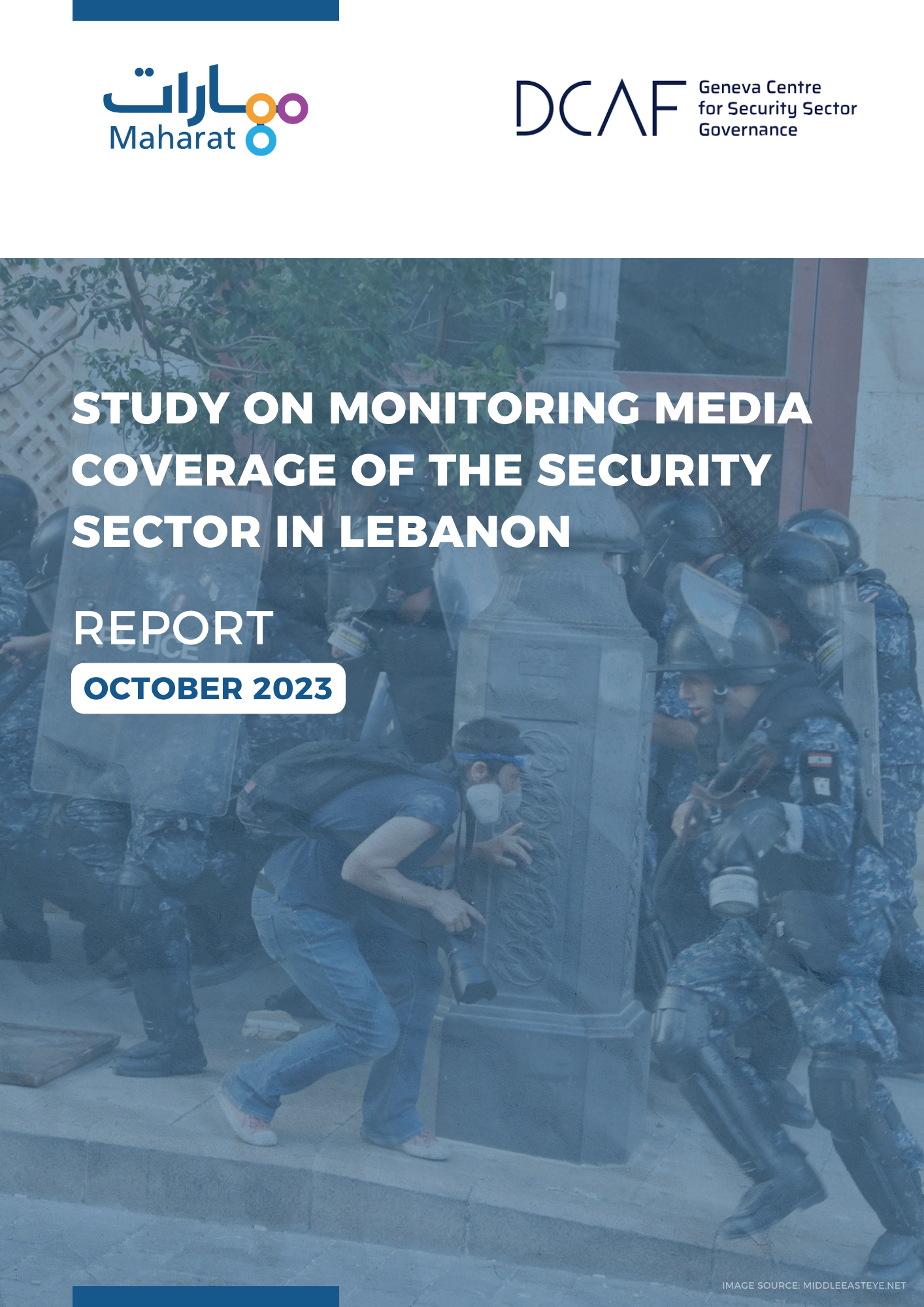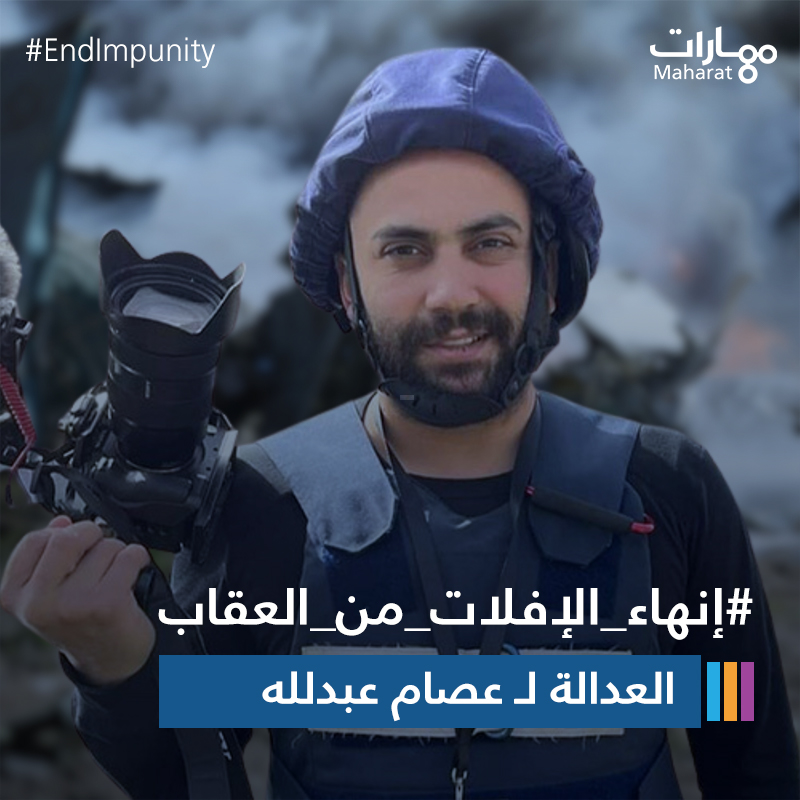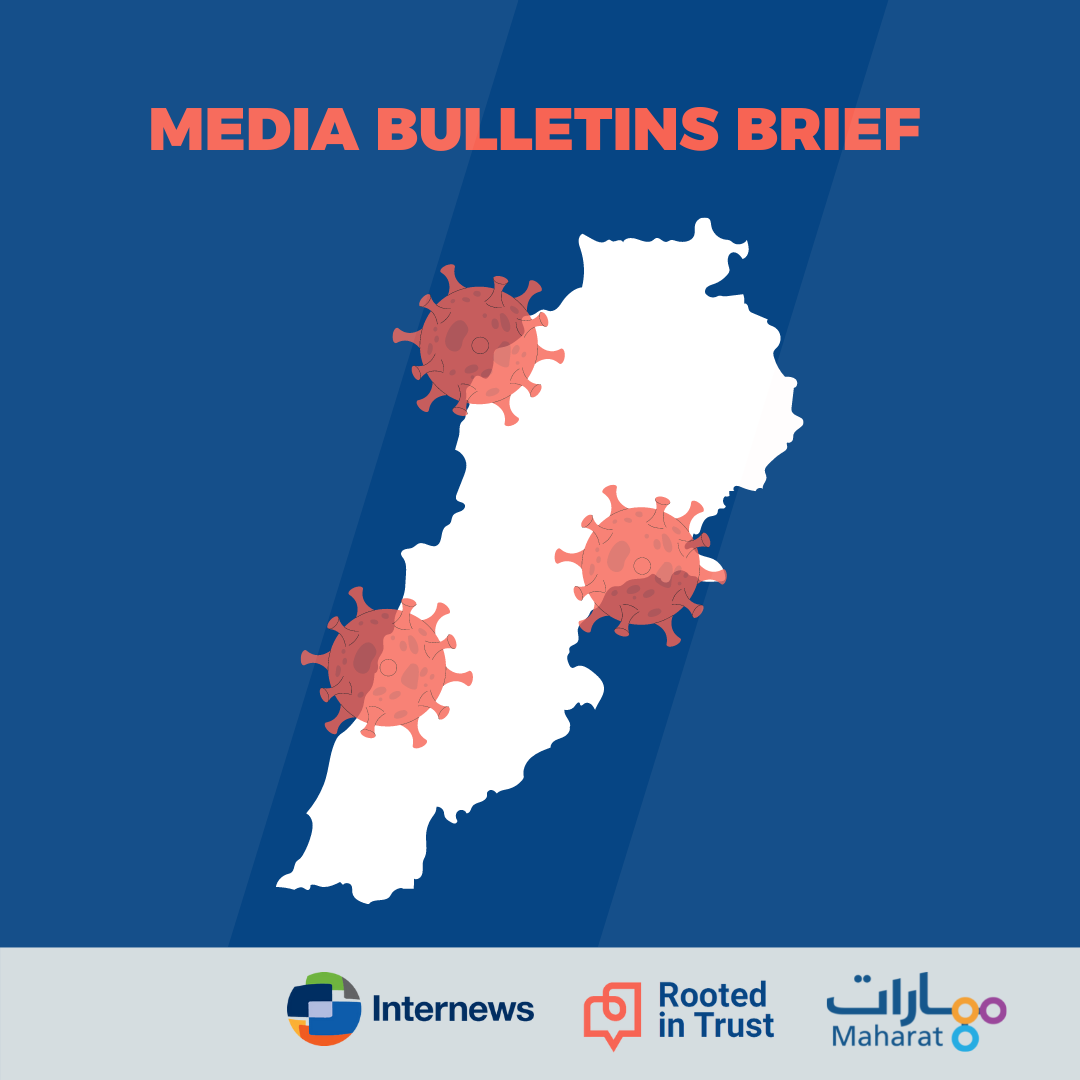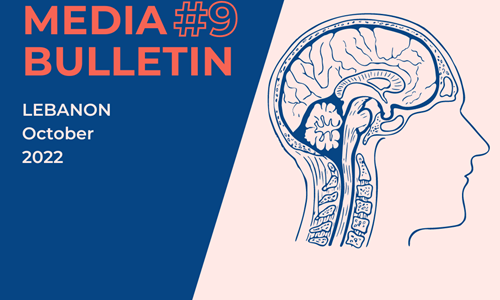
Study on Monitoring Media Coverage of the Security Sector in Lebanon
All Security forces agencies constitute an extension of the executive authority and are entrusted with fundamental roles to safeguard borders, maintain security, and thwart any attempts that threaten public stability, among other responsibilities.
Lebanese media outlets on the other hand are entrusted with vital responsibilities in the practice of good governance through their oversight and alerting role, but also by shedding light on any misconduct by security forces in the performance of their duties. And for the media to provide an effective oversight, there must be trust established between the security agencies and media.
However, the prevailing political situation, interdependence between the executive and judicial branches in Lebanon as well as the disorientation in political practice, reflects and restricts the media framework and judicial freedom, undermining the principles of good governance.
Within this context and to address the crucial role of the media in society and its relationship with security authorities, this study conducted by Maharat with the support of DCAF (Geneva Centre for Security Sector Governance) funded by the Norwegian Embassy, focused on monitoring and analyzing how the Lebanese media covers security events, how it deals with potential violations by security forces, the extent to which it respects human rights principles, and whether it plays a critical and oversight role in society.
Main Findings/Results
The study’s results that were based on the monitoring, focus groups and interviews conducted with officials from civil society organizations concerned with human rights, as well as officials from security institutions, highlighted that security topics are sensitive subjects that the media approaches with caution. Additionally, security institutions are cautious when discussing their relationship with the media.
The analysis of the media content revealed that during the month of February, a total of 306 different coverages related to the topic of security were reported across these media outlets. Among them, 55 coverages were incidental, appearing within the context of other topics, while 251 were primary coverages addressing security issues.
Another key concern, addressed in the study, lies in the level of interest in security coverage that varied significantly during the monitoring period. In fact, the data showed that Al-Jadeed aired 42 security-related coverages, compared to 9 by MTV and 3 by Al-Manar during the same time frame, adding to that the difference in the editorial stances of the media institutions and their positions on security coverages that can vary when dealing with specific issues.
In terms of divergent positions within the media landscape, it became apparent that alternative media was more stringent in advocating for human rights and directly accused the security apparatus.
The study also highlights that investigative journalism was nearly absent from security-related topics, with the majority of security coverage being news-based or reports relying on official data or news agency reports and correspondents.
Additionally, this study delves into the media tone adopted by the media outlets regarding security news that appeared to be mostly neutral, with a significant percentage for both the positive tone (17%) and the negative tone (15%).
The study also flags the marginality of social diversity in security coverages: in the observed coverages, which numbered 227, women, people with disabilities, migrant workers, and marginalized groups appear to be absent. The topic of refugees appeared in the context of a migrant boat sinking in Tripoli. The LGBTQ+ community appeared in one case, presented through a Human Rights Watch report, and the related events were covered in two cases.
This study addressed a set of recommendations for each of the media institutions and security forces agencies with the aim of fostering trust and collaboration between them as well as enhancing reporting on security issues.
It concluded with a detailed analysis of a set of 10 case studies to illustrate how the media deals with important issues on the security level as well as a field study that aimed to understand the opinions of three directly involved parties in security news: journalists, civil society organizations concerned with human rights, and official security institutions.
Read the full study in English:
Study on Monitoring Media Coverage of the Security Sector in Lebanon





